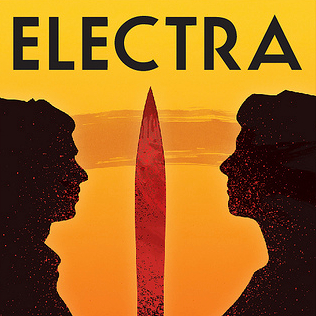
Explore this Show
Overview
Synopsis
Several years after the Trojan War, the hero Agamemnon has been murdered by his vengeful wife, Clytemnestra, and the kingdom of Mycenae is now under the control of Clytemnestra and her lover, Aegisthus. To prevent an uprising, Agamemnon’s daughter, Electra, has been married to a low-born peasant in the countryside outside of Argolis. Meanwhile, his son, Orestes, was sent away to the kingdom of Phocis.
Now a grown man, Orestes returns to the kingdom of Mycenae with his friend, Pylades, with plans to avenge his father’s death and reclaim the throne that is rightfully his. He goes in disguise to the home of Electra, to determine if she is still loyal to Agamemnon. Orestes discovers that Electra is even more passionate to avenge their father’s muder than he is, and together the two of them make haste to the palace to carry out their revenge. What follows is one of the most famous scenes in Greek tragedy: the grisly - though justified - matricide of Clytemnestra by her own children.
The figure of Electra is one of the most popular in ancient dramatic literature. Although Euripides is thought to be the first to have chronicled her story for the stage, the tragedy of Electra has also been famously adapted by authors both classic and contemporary, such as Sophocles, Voltaire and Eugene O’Neill.
Show Information
Context
Plot
Characters
| Name | Part Size | Gender | Vocal Part |
|---|---|---|---|
|
Lead |
Female |
Non-singer |
|
|
Lead |
Male |
Non-singer |
|
|
Supporting |
Female |
Non-singer |
|
|
Supporting |
Male |
Non-singer |
|
|
Featured |
Male |
Non-singer |
|
|
Featured |
Male |
Non-singer |
|
|
Ensemble |
Male |
Non-singer |
|
|
Ensemble |
Female |
Non-singer |
Songs
A song with an asterisk (*) before the title indicates a dance number; a character listed in a song with an asterisk (*) by the character's name indicates that the character exclusively serves as a dancer in this song, which is sung by other characters.
Monologues
Scenes
Key Terms
Sorry! We do not currently have terms for this guide.
Videos
Quizzes
Themes, Symbols & Motifs
Sorry! We do not currently have learning modules for this guide.
Quote Analysis
Sorry! We do not currently have learning modules for this guide.
